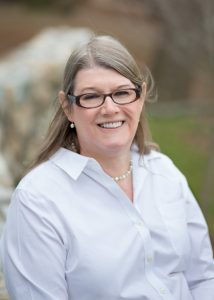
Tell us about yourself!
I am a 63- year old transgender female. I went through my transition 10 years ago, after a lifelong struggle with gender dysphoria. At the time of my transition, I really got rejected by a lot of people. My marriage ended, people refused to speak to me, I lost any kind of connection with my step-children. It was really tough… I found my way into a Unitarian Universalist church that was extremely accepting, welcoming and supportive. And so I became a UU, around 2008!
As part of my transition process I discovered systems of power, became aware of my whiteness and the power and privilege that came with it, and started to think deeply about how I was going to live my life going forward. After about three or four years, I decided I would go into the ministry. So I went into the seminary, and along the way developed empathy for all people who are oppressed. I got deeply involved in anti-oppression, anti-racism, and multiculturalism work. That really is where my soul is at these days and that is a real core part of my ministry. As part of the process of becoming a UU minister, I had hospital chaplaincy training, which really further opened my eyes to how people suffer and cope with grief, bereavement, pain, uncertainty, fear and all those emotions. During part of my chaplaincy training I encountered some patients who were very clearly victims of domestic violence very reticent to talk about it. That was a new experience for me, I had never encountered that phenomenon before, despite a lot of other things I had been through.
Part of the qualification process to become a minister in the UU is that you have to do an internship in a church, and I landed in Lincoln Massachusetts. Lincoln is a deeply privileged, predominately white, affluent community. I learned from the senior minister there that the single biggest call to the police in Lincoln is domestic violence. I decided to focus my social action outreach during my internship on domestic violence. One day in September 2017 I wandered into the Sudbury-Wayland-Lincoln Domestic Violence Roundtable and encountered Lauren Montanaro. We had a conversation and based upon that I decided to undergo training and become a REACH Volunteer.
You brought several events about domestic violence to your faith community. What motivated you to do that?
The reason I did that is because they seemed to be unaware or possibly in denial about a major problem in the community. I would hear things like, “Oh no that can’t happen here,” “we’re too privileged, too educated, too white,” “that only happens to people of color”, or” where there is lots of drug abuse” and so on. I felt the need to educate them to a problem that was right on their doorstep. But I also wanted to inspire them to look outside what I call, ‘the garden of Lincoln’ and realize that things are happening not only in their community, but in their neighboring communities as well. I really just wanted the community I serve to see itself in the mirror and not duck their heads in the sand about a real problem. The Lincoln church community is very caring with each other; if one member of the congregation gets a headache, the other will drive over to their house with aspirin. I wanted them to realize there were ways to help one another that may not have been something they were thinking about or talking about previously to be more of a supportive community for themselves. For all these reasons, I thought it was part of my ministry to educate, make aware, and help.
What would you say to other clergy or ministers thinking about bringing these types of conversations to their communities?
Get information. Find out the facts of how common it is in your faith community. Certainly accept the truth that more than likely it is there in your community, and learn how to deal with it. Get some training from REACH or other organizations, and don’t be bashful about raising the topic at coffee hour or meetings of the church administrative bodies. Talk about it. Get it out into the conversation and bring it to the public square, because it really is a serious issue that gets so little attention and is so preventable, and the response to it doesn’t cost a lot of money. It’s something that ministers can lead from the front, behind, and on the side as allies.
I really have grown a lot both spiritually and professionally from the REACH training and it’s opened my eyes to see things that were really invisible. It has given me an additional sense of purpose and a dimension to my ministry that wasn’t there before. I really encourage ministers, lay people, and church leaders to get involved, in particular because it is something that is so avoidable and doesn’t require billions of dollars to be invested in it to handle. It is something that eradicating it or reducing it can be achieved if we just put our minds to it.





